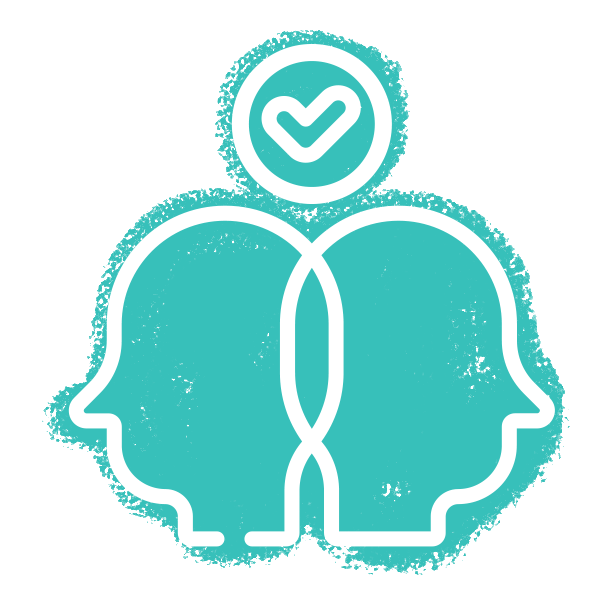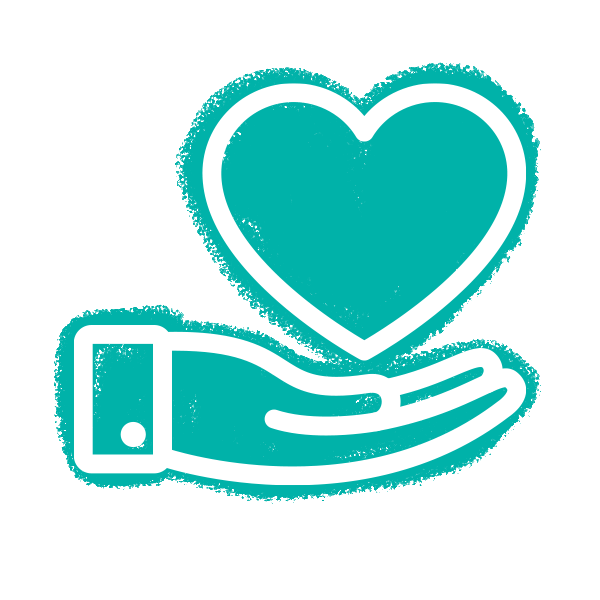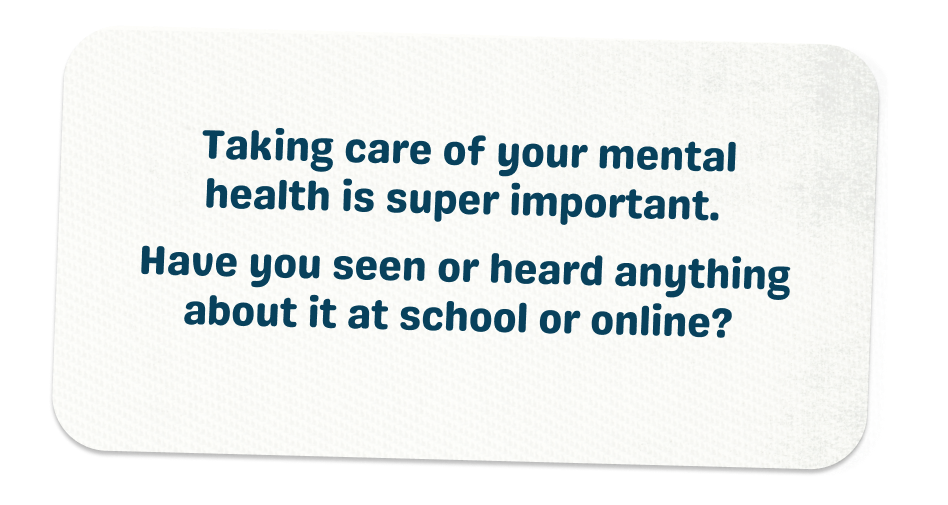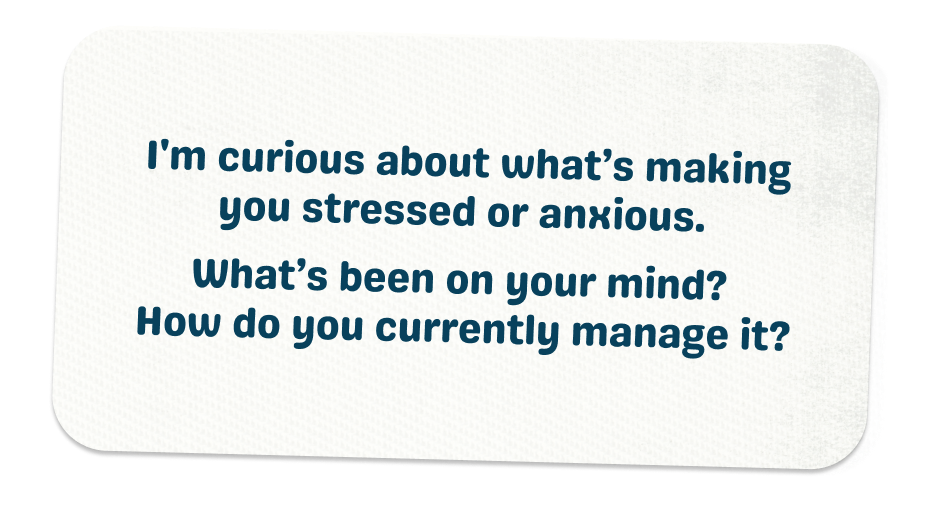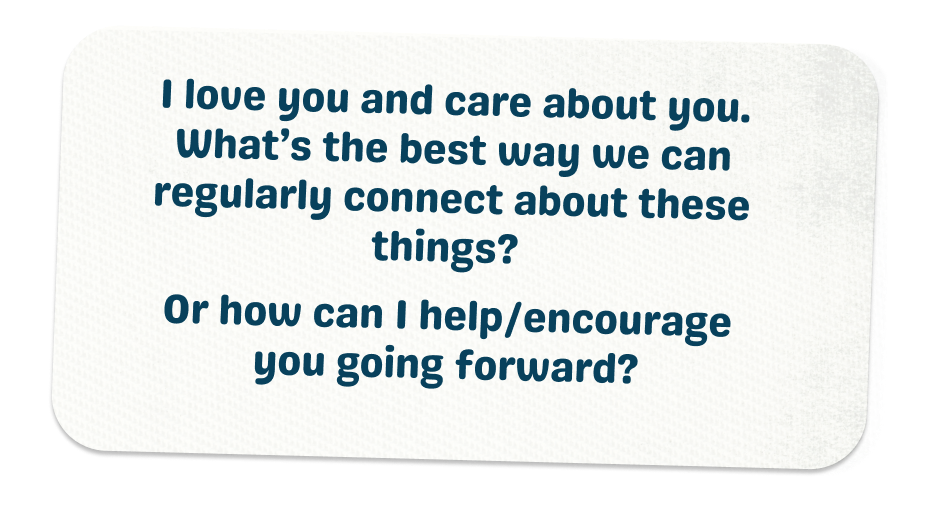In this guide you will:
Learn simple ways to start the conversation about mental health
Get the facts about teen mental health to come to the convos feeling more confident
Find questions to ask and what to expect
Let’s get started with Connect More:
Wellness Wins for Teen Mental Health!
FIRST STEPS:
“HOW TO START TALKING ABOUT MENTAL HEALTH”
Ready to take on the challenge of chatting about mental health with your teen? Through communication and teamwork, you can win this round. Try these tips:
Begin by choosing a good time to talk.
Finding a time when you can be together without any specific plans or pressure is important. You can bring up the topic of mental health while doing chores, cooking, or hanging out. It’s better to wait for another time if your teen seems busy or has a tough day.
Share observations and ask non-judgmental open-ended questions.
Skip simple questions like, ‘Are you okay?’ Instead, directly address changes you see in their mood, performance at school, or other behavior: ‘I’ve noticed [behavior], and I wonder if it’s related to stress, anxiety, or something else. Let’s talk.’
Pro-tip:
Download our Winning Guide on Mental Health for easy info.
Provide extra care, support, and attention when your teen is navigating difficult situations,
like the loss of a loved one, divorce or separation of their parents, life transitions like moving or changing schools, teasing, bullying, or other difficulties with classmates, and other traumatic life experiences.
Make a routine of checking in.
Check in often and listen to what they have to say. But don’t try to solve their problems for them. (Teens don’t like that.) Ask them how you can support them on the things they’re struggling with.
Pro-tip:
If they have difficulty talking, ask them to pick an emoji that expresses how they’re feeling today.
Talk about the good.
It’s natural to want to focus on what’s causing stress or anxiety. But instead, ask them about one good thing that happened or something they’re looking forward to.
Don’t let emotions, like anger or fear, take over when you hear something unexpected or difficult.
It can sometimes be hard for young people to share their feelings or experiences. They may also be worried about your reaction if they open up to you. Just listen.
Be consistent and keep your conversations going.
If a conversation feels hard, you can pause and return to it another day. You don’t have to cover everything at once.
Seek support from others to help your child.
Talk to your teen’s health care or mental health provider, school counselor, or school nurse. They can help you find appropriate care for your child.
I Matter provides free virtual professional counseling for youth ages 11 and older. Counseling sessions are always confidential.
Connect More Tip:
Seek assistance right away if your child is in crisis or is in danger of harming themselves or others. Call 911 or contact Colorado Crisis Services by calling 1-844-493-8255 or text “TALK” to 38255
Try These Conversation Starters
CONNECT MORE:
SEE A MENTAL HEALTH CONVO IN ACTION
Check out our tools to help with stress/anxiety and share what you’ve learned with your teen. It’s never too early or too late to start the conversation.



